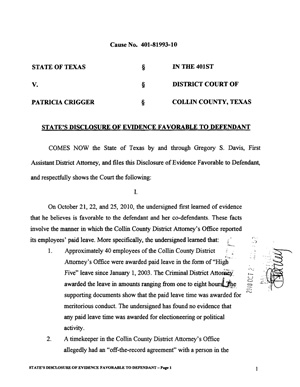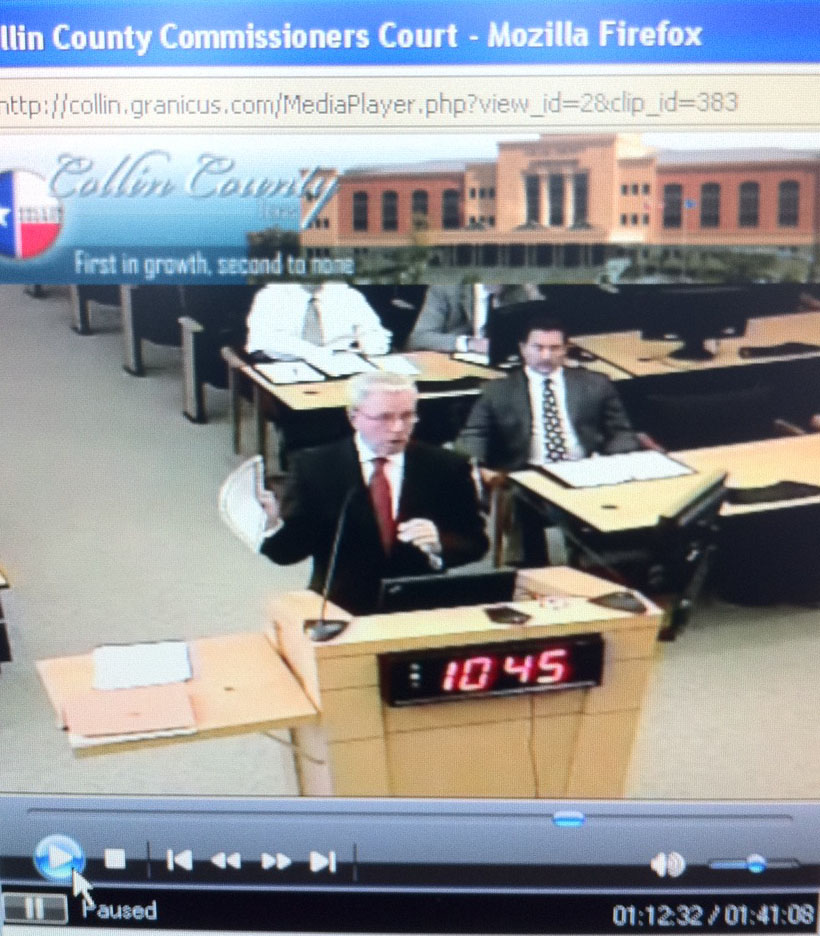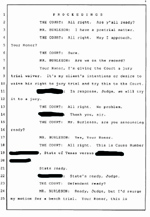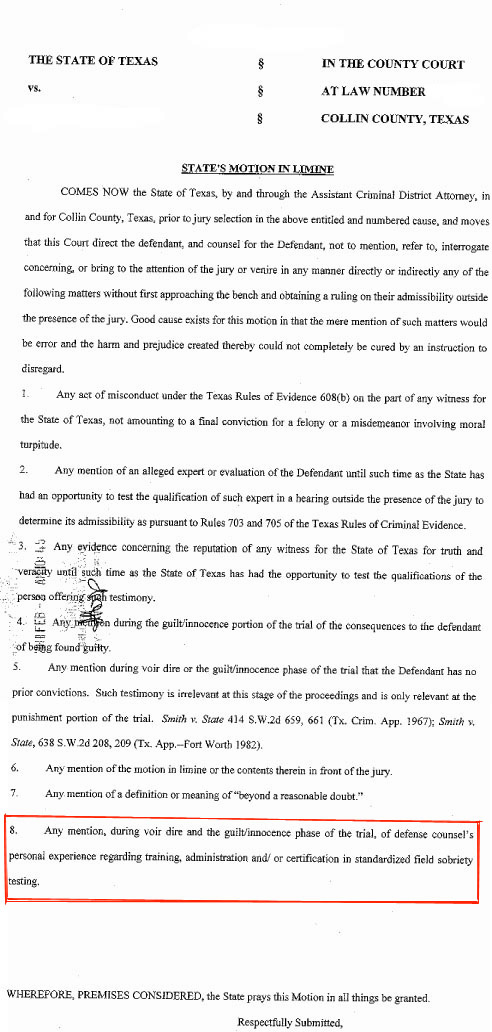 Immediately after filing Brady Material – Favorable Evidence to the Defense, the Collin County District Attorney’s office joined in the Defense’s prior motion to recuse the District Attorney.
Immediately after filing Brady Material – Favorable Evidence to the Defense, the Collin County District Attorney’s office joined in the Defense’s prior motion to recuse the District Attorney.
In the filing today, Gregory Davis, the First Assistant District Attorney explains that "[a]s a result of newly discovered evidence set forth in the State’s Disclosure of Evidence Favorable to Defendant, the State of Texas now agrees that the Criminal District Attorney of Collin County and the Collin County’s District Attorney’s Office is disqualified in this case."
Both of these filings follow my past article, "How To Gut Your Own Case: Collin County District Clerks Case." which outlined the similarities in the District Attorney’s High-Five paid time off program, and the District Clerk’s "Blue Book" time.
 Frisco DWI Lawyer & Attorney Blog
Frisco DWI Lawyer & Attorney Blog




 Yesterday, our firm found ourselves in an odd position. A case of ours was set for trial, and we were ready to go. (That’s not the odd part). The odd part is that although we were willing to waive the jury and allow the judge to make the determination of guilt, the state wouldn’t allow it.
Yesterday, our firm found ourselves in an odd position. A case of ours was set for trial, and we were ready to go. (That’s not the odd part). The odd part is that although we were willing to waive the jury and allow the judge to make the determination of guilt, the state wouldn’t allow it.